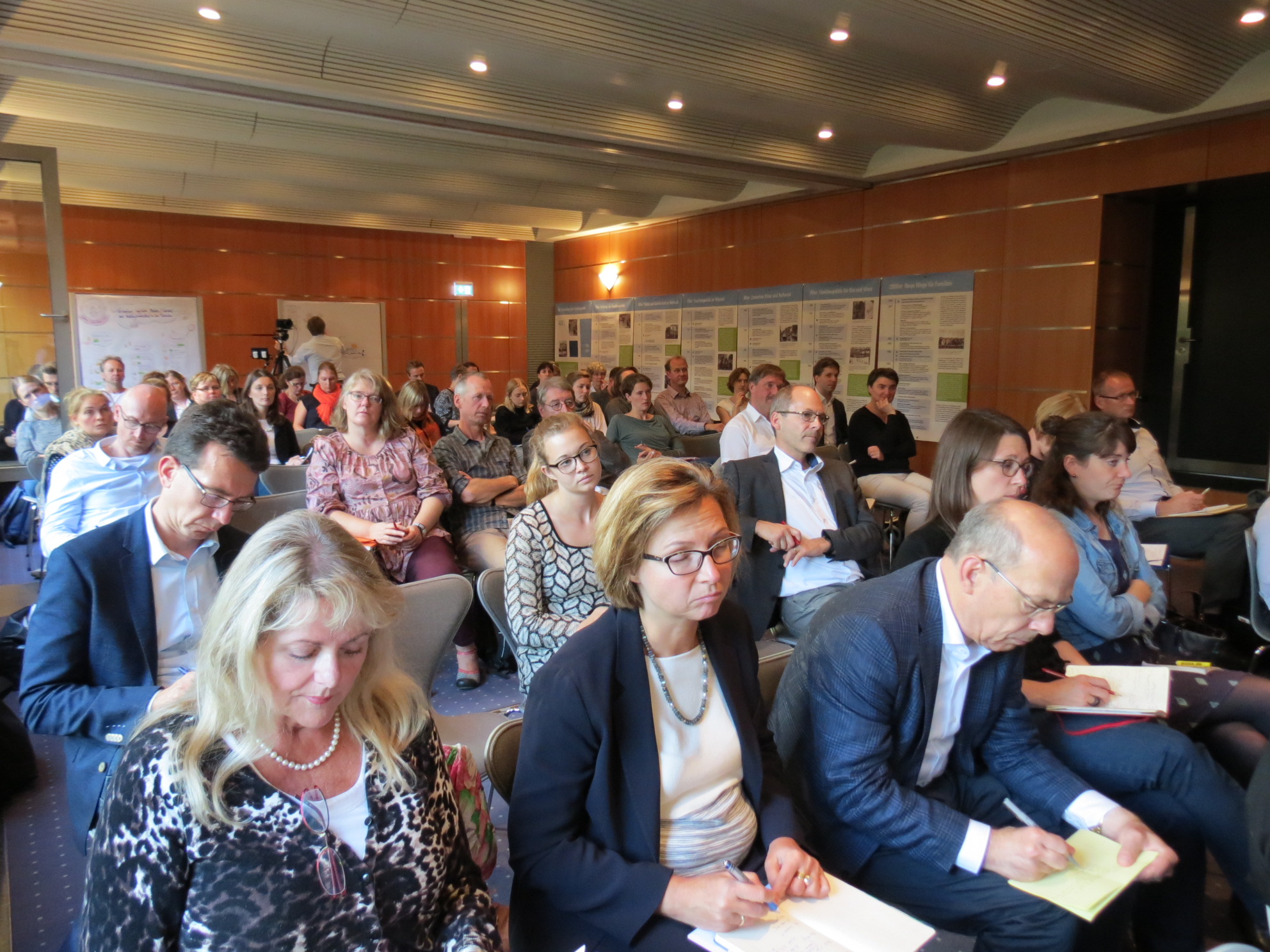Children need Future – for an Europe without Poverty!
Date: 14 November 2008
The event was directed at representatives of family-political and child-political organizations as well as at well-known scientists and academics from the European member states. In focus was the exchange of ideas and exchange of experience among the masses, the causes and the results of child poverty in the European member states as well as the search for common suggestions on solutions.
Child Poverty – a Structural Challenge
Date: 21 November 2007
The results of poverty appear with children in nearly all areas of their life: Poverty leads to disadvantages in educational opportunities, to poorer health, to social exclusion and to damaged self-confidence. This conference placed the main focus on the institutions concerned with child poverty and structures in Germany. As well as this, the question as to how the present political and institutional structures themselves contribute to the solidification of this poverty was posed.
DNK conference: Meeting Place Europe – Families and Generations on New Paths
Date: 19-20 March 2007
The demographic development in almost all European countries is one of the biggest challenges for the member states of the EU. In the conference of the German national committee (DNK) of the world Family Organization the relevant subject complexes were consolidated in collaboration with the AGF: Those including relations between the generations, mutual and lifelong learning as well as support of the families for the protection of a united community.
The documentation “Meeting Place Europe” (in German) can be ordered from the office of the AGF.
Education Competence and the Borders of Diversity
Date: 09-10 November 2006
The Family-appropriate Tax Revision – which Tax Policy do families need?
Date: 24-25 October 2005
The discussion on family incentives and the distribution of burden in Germany stood at the forefront of this symposium. As well as the elaboration on the current state of affairs, the history of the development of these achievements was examined and the overall view was directed past the national state of affairs to include that of the European neighbours. Thus it was clarified which family incentive schemes other European countries use and which alternative models could perhaps also be relevant for Germany.
International Year of the Family – 10 years later. The family as a Mirror of Social and Political Developments
Date: 15-16 November 2004
What has changed for families after the international year of the family in 1994? Which quantitative and qualitative results can be recognised? This stock-taking on the current situation of families was supplemented with the search for perspectives for a European family policy.
The Seventh Family Report – Questions and Suggestions on the Issue of “Child-conditioned Poverty”
Date: 07 June 2004
This discussion with members of the expert’s committee on the seventh family report ‘Future of the Family – Social Changes and Social Cohesion‘ enabled the AGF to draw attention to important family political necessities, in the run up to the report. The issue of ‘child-conditioned poverty’ was the main focus of the discussions.
What Children need- What do Children need?
Date: 24-25 June 2003
At the centre of this discussion was the social educational responsibility for children. Against the background of the other consequences from PISA – as well as the IGLU study, the seminar discussed particularly which educational and care concepts appropriate for children, are necessary and also from the children’s‘ perspectives, how and which collaborations between families and educational institutions should be formed.
Children in Good Hands- On the Connection between Family and Education Policy
Date: 29-30 October 2002
In this professional discussion with various topical studies on the education of children and young people main focuses were established for further work, and educational policy requirements were composed. The collaboration with and for families was at the forefront, with the purpose of strengthening and further supporting the education and up bringing responsibility of the family.

